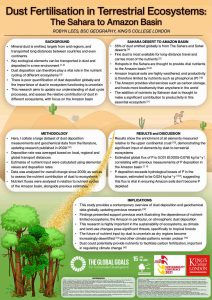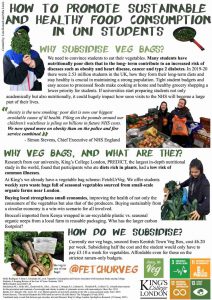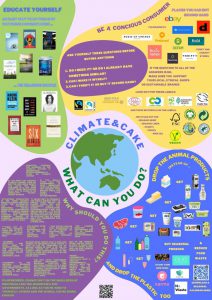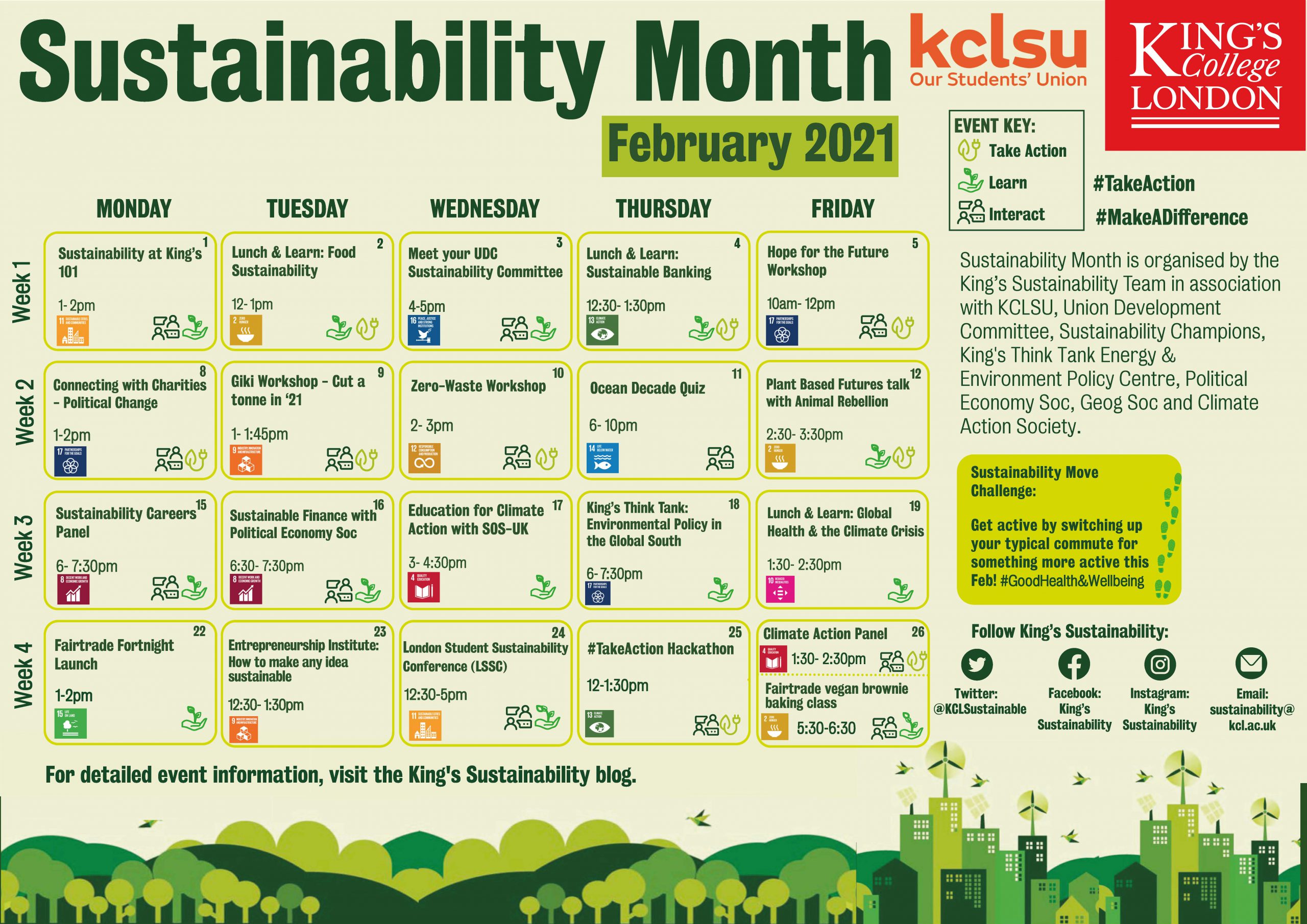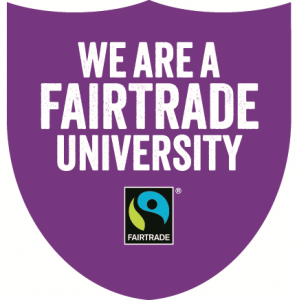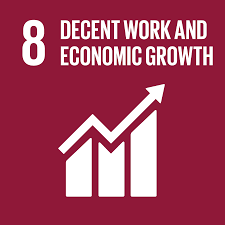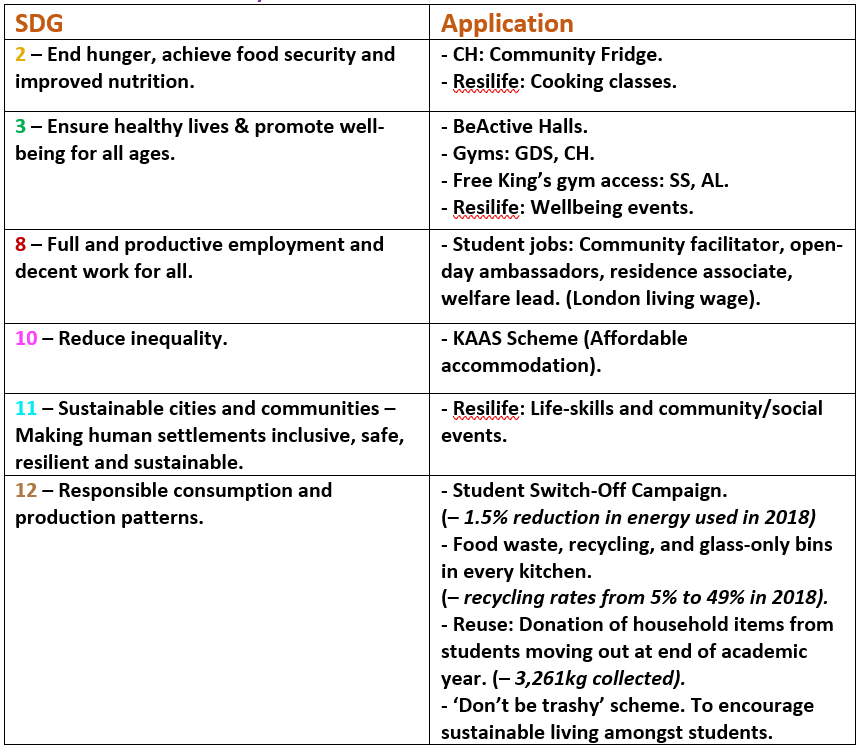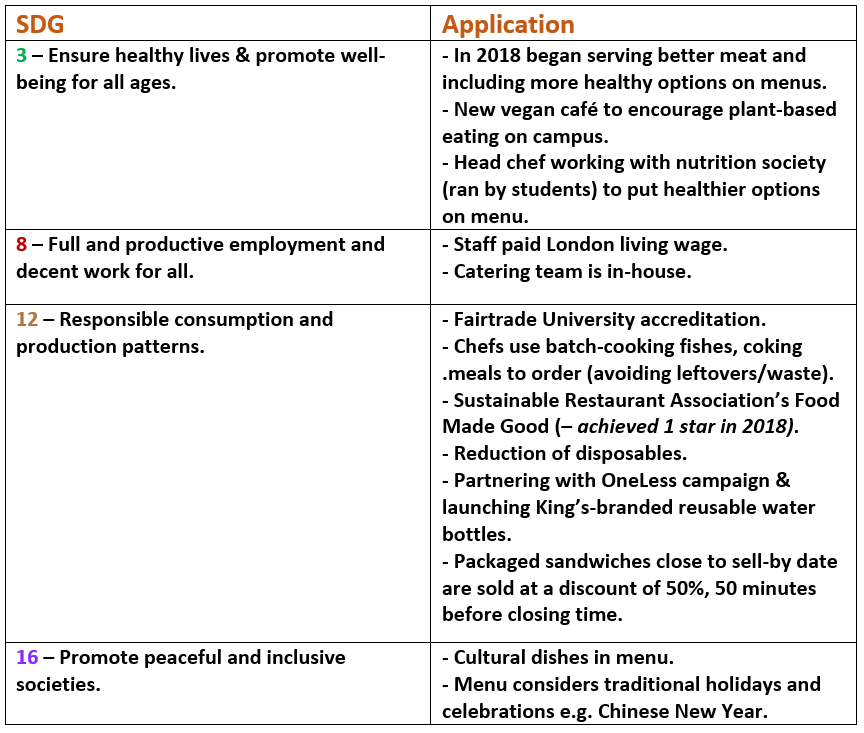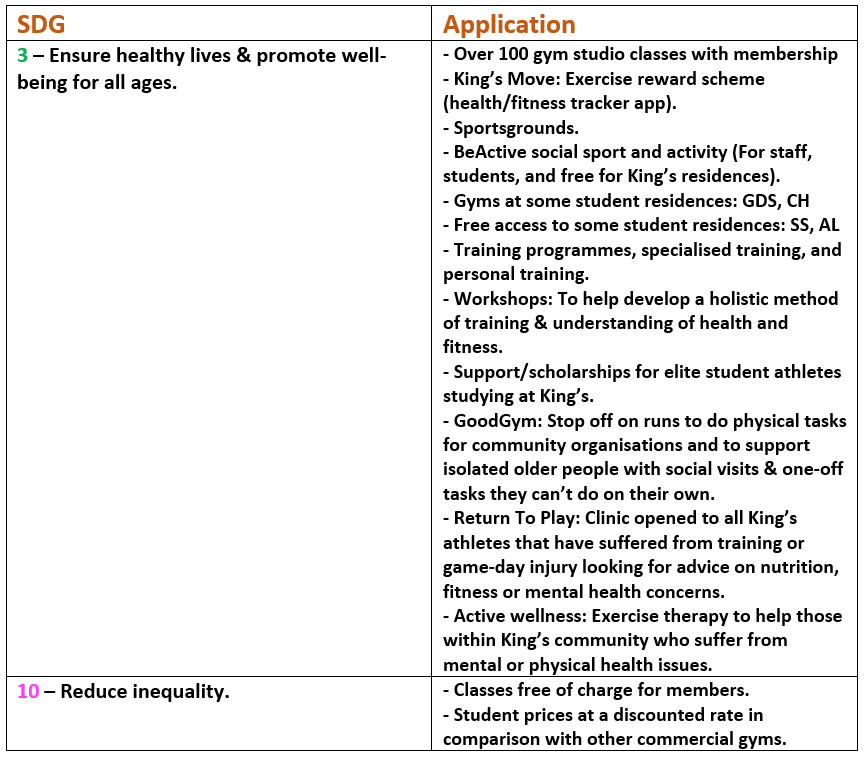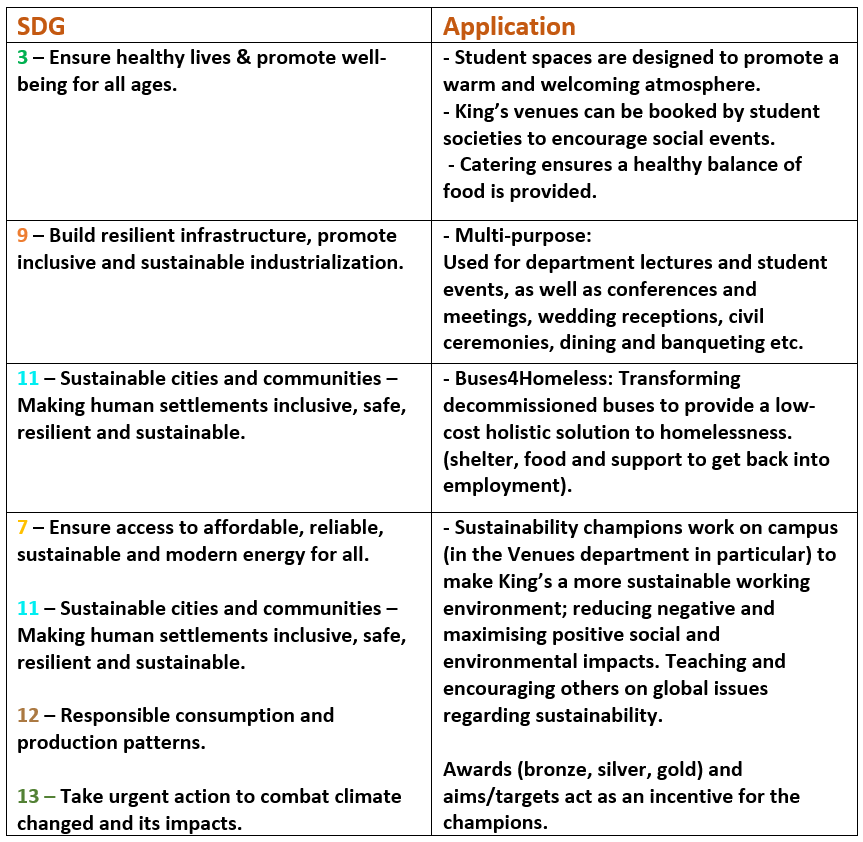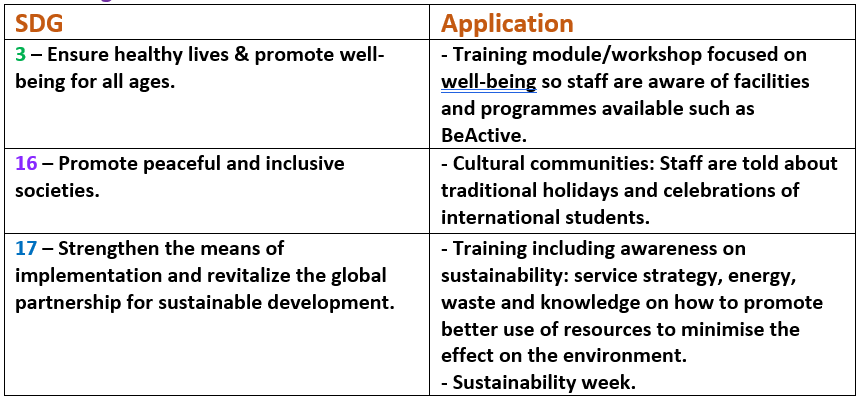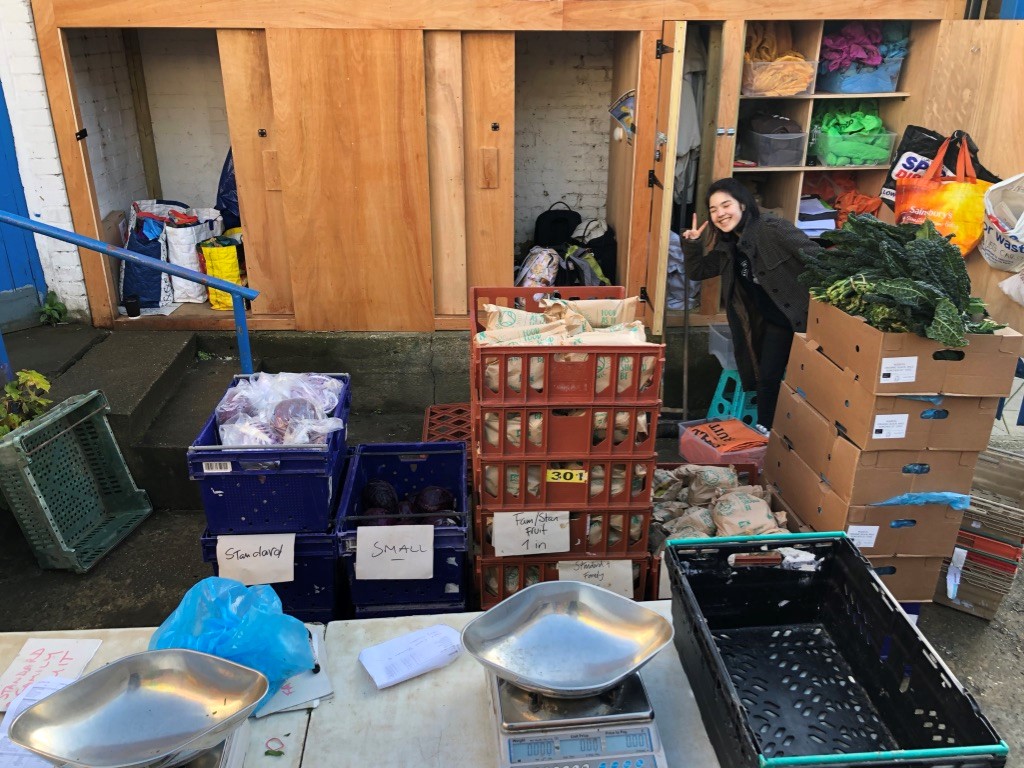Each year, we hold Sustainability Week to raise awareness and educate King’s staff and students about sustainability at King’s. Sustainability Week revolves around how to ‘#MakeADifference’. The Sustainability Team, alongside students, student societies, staff Sustainability Champions and charities, put on events with the aim to educate and inspire around various topics relating to sustainability (whether that be social, environmental or economic), give back to society and most of all – have fun!
We had a total of 522 people come to take part in the events throughout the week.
Here is a summary of some of the events we had throughout the week…
GEOGFEST
GeogFest’ was a charity event for King’s staff and students, organised by GeogSoc and the Geography Sustainability Champions to raise money for the International Tree Foundation.
The even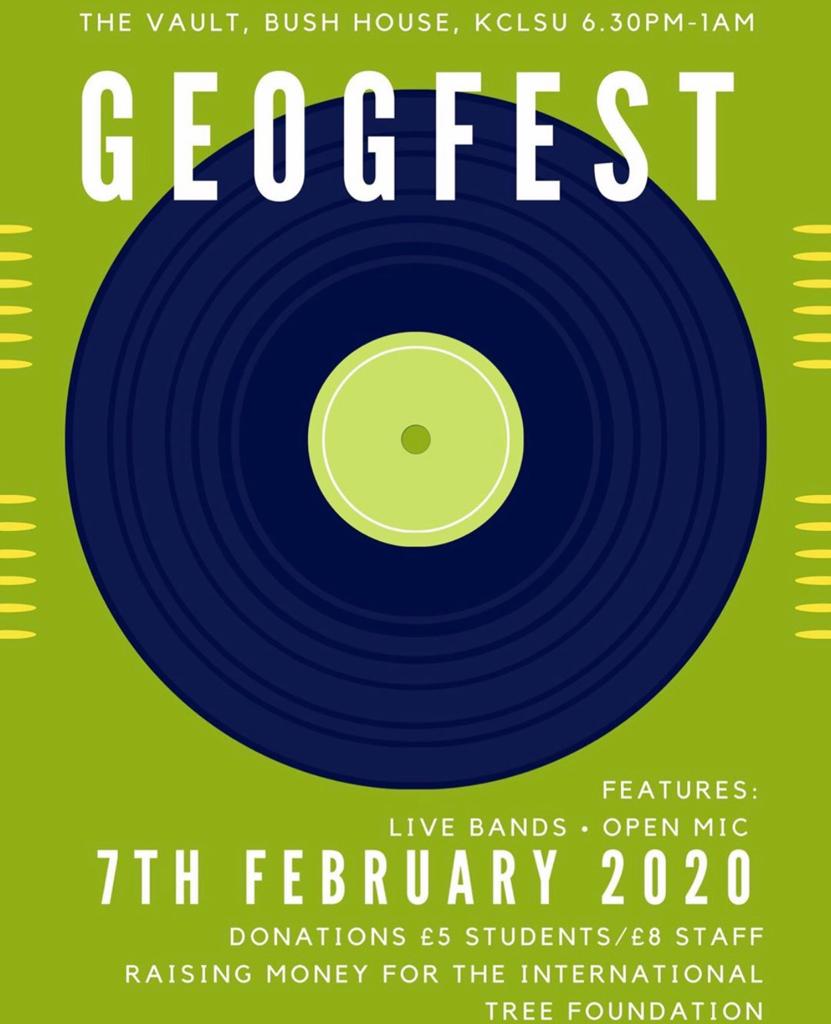 t took place in the KCLSU bar The Vault on Friday 7th February as an early kick of to Sustainability Week.
t took place in the KCLSU bar The Vault on Friday 7th February as an early kick of to Sustainability Week.
There was entertainment from the Worn out Shoes ceilidh band formed by academics from across the Geography department, PhD candidate George Warren and a dance materclass by UG student Pia Fletcher.
There was a live count of the money raised through the night, in total the Geography department raised £243.38 for the ITF, which will be used to help offset the flights from second year Portugal and Morocco fieldwork trips.
DIY lip balm & craft your own zero-waste products
Gathered in the KCLSU zero-waste store, Nought, 24 students got together to learn how to make their own zero-waste lip balms (recipe here – made without the honey) and how to crochet their own face scrubbie, instructed by King’s Energy Manager and star crafter, Julie Allen.
During sustainability week, Nought held a competition to win a zero-waste hamper for all those who spent over £10 – so this event was also a chance for the students to stock up on their essentials to be in with a chance to win!
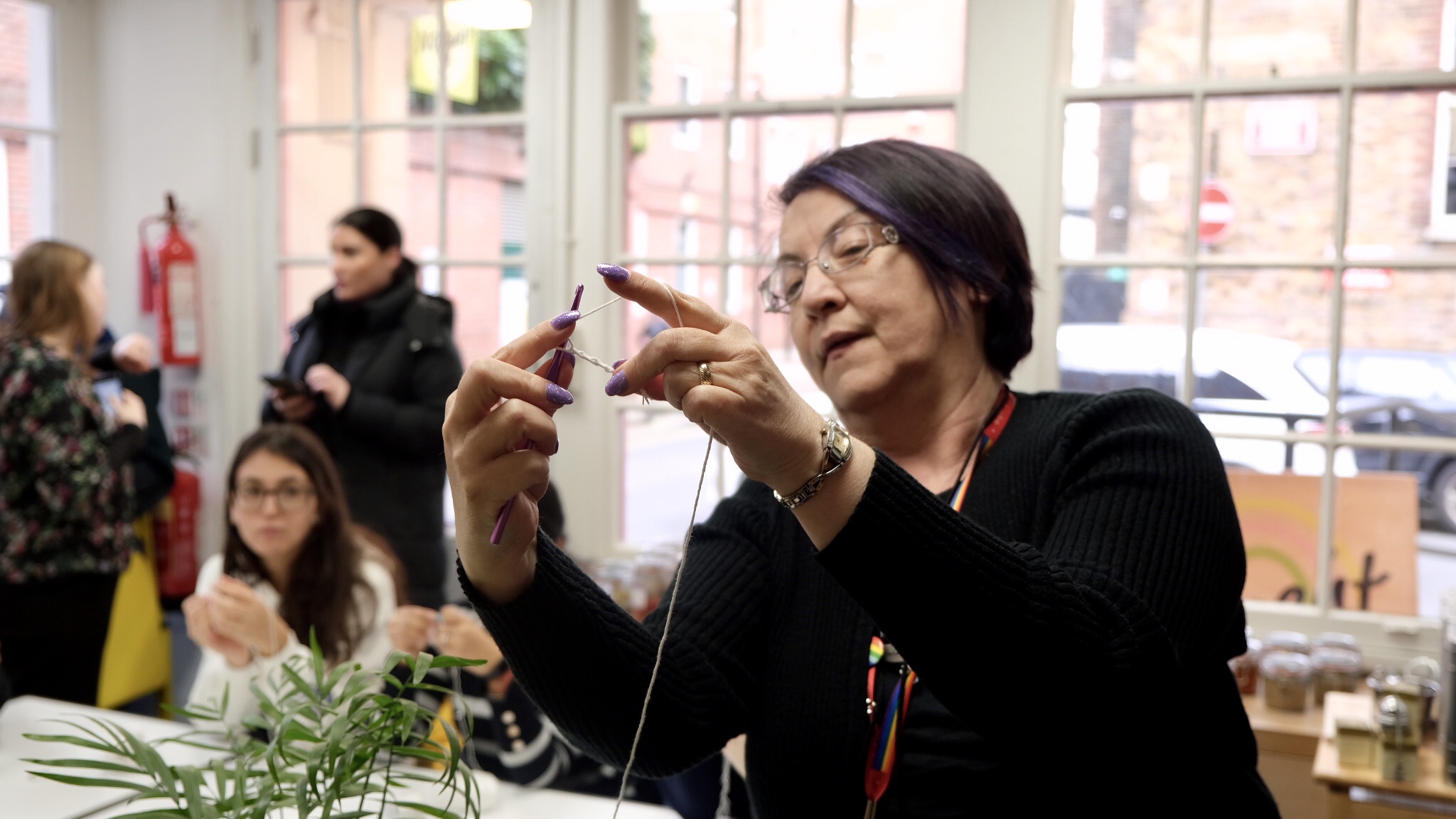
A Green Threaded Corridor
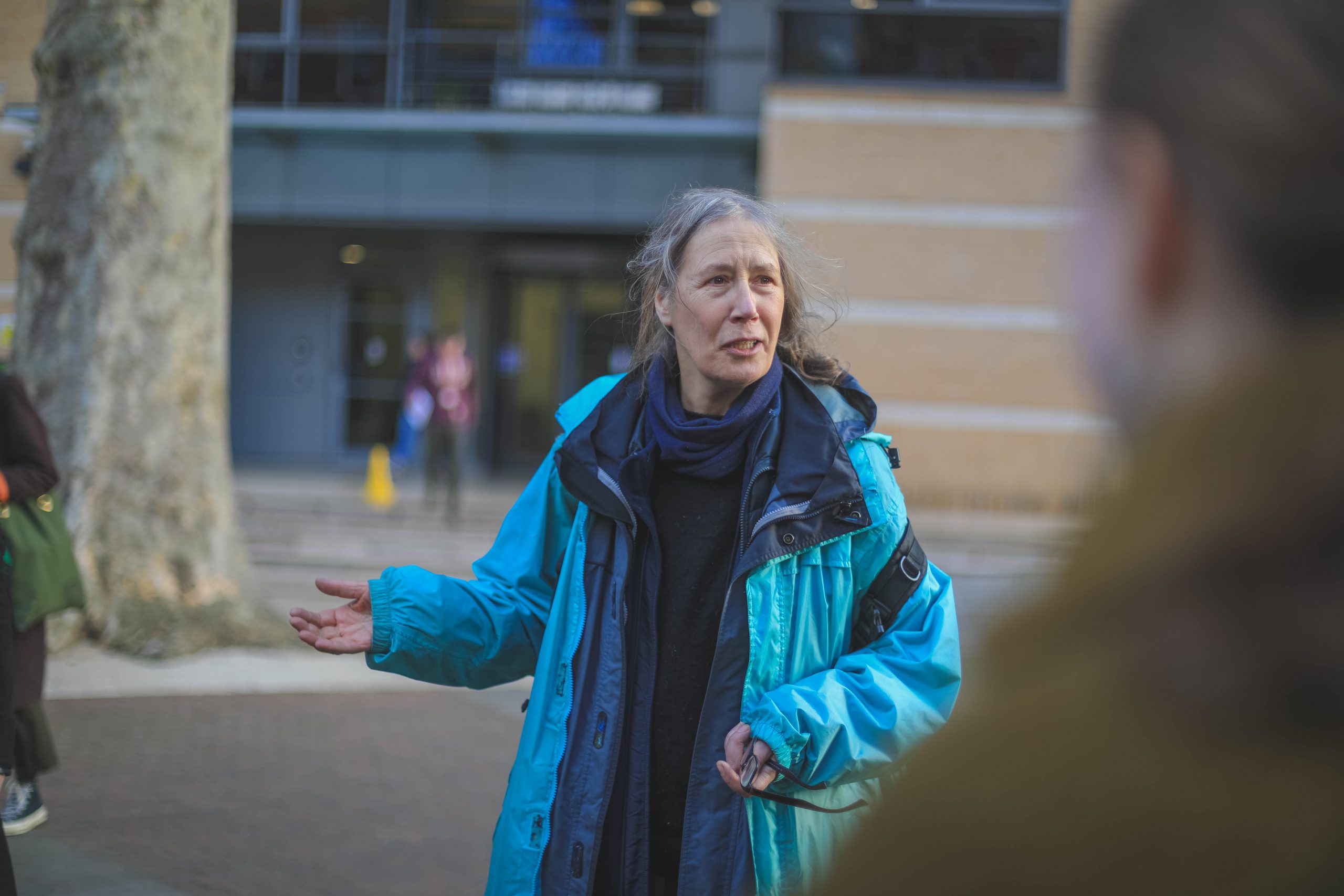
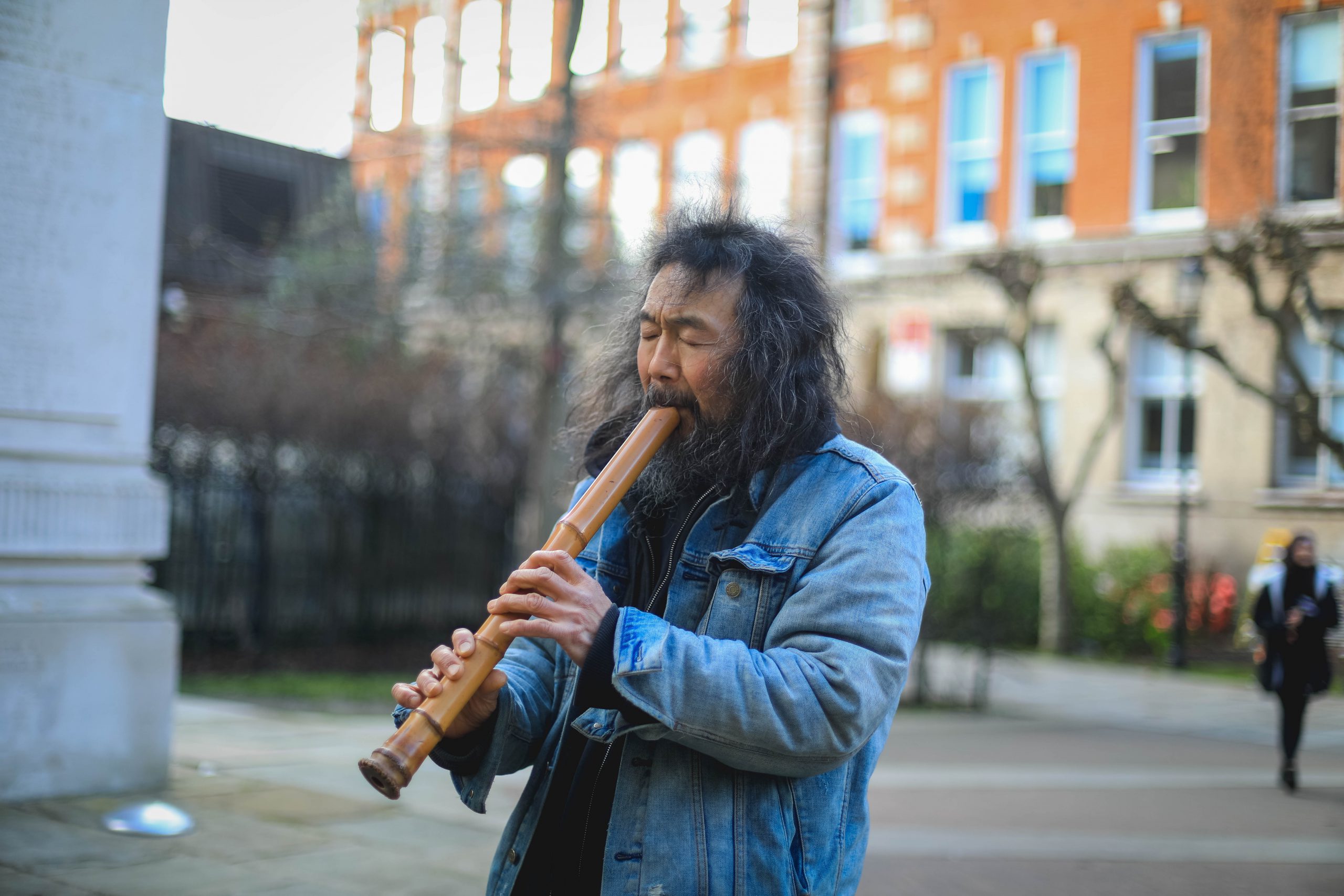
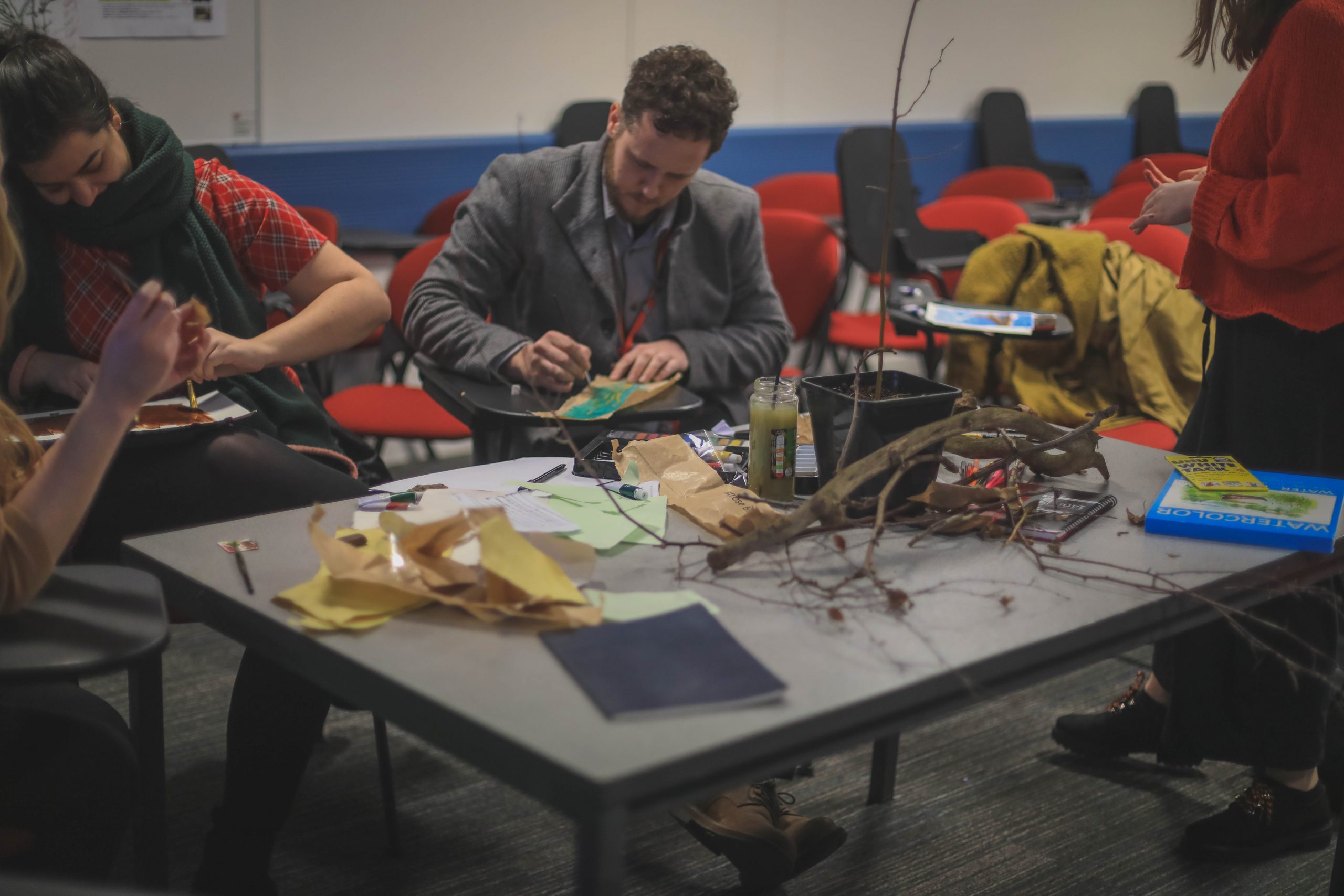
Artist and Goldsmiths University student, Margaret Jennings came to Kings to deliver ‘A Green Threaded Corridor: Tree Art Workshop’. The workshop started with a conversation about our natural environment in the middle of Guy’s campus memorial garden and an insight into Margaret’s background and artwork. This was followed by a silent walk around the gardens, taking notice of the trees and life which surrounds them.
Natural materials from the gardens were gathered and used in the art section of the workshop. The art was inspired by our individual tree stories (e.g. a cherry tree in a grandfathers garden or the grief you feel when a tree is cut down) – the art could be painting, drawing, poems. These were passed around and altered by others – as a comment to nature and its ever evolving state.
The art and poems created in the workshop will form the body of Margaret’s research at Goldsmiths university – alongside other university and community group tree stories.
The event ended with planting a Birch sapling on Guys Campus gifted by Goldsmiths University. This will form part of a tree corridor, as King’s will be mirroring this by gifting an Alder tree to Goldsmiths University.
King’s Think Tank: Post-Environmental Regulations Debate
See the blog post below, for an event summary from the Director and Researcher of the King’s Think Tank Energy and Environment policy centre.
Vegan Sushi Class
King’s Vegetarian and Vegan society ran a vegan sushi class at Great Dover Street Apartments (GDSA) café. Over 30 students came to learn how to make their vegan sushi from scratch – how to cook the perfect sushi rice, prepare the vegetables, tofu or tempeh and do the perfect sushi roll.
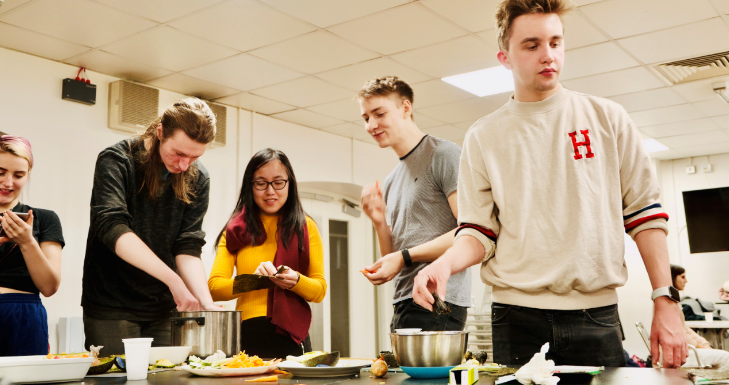
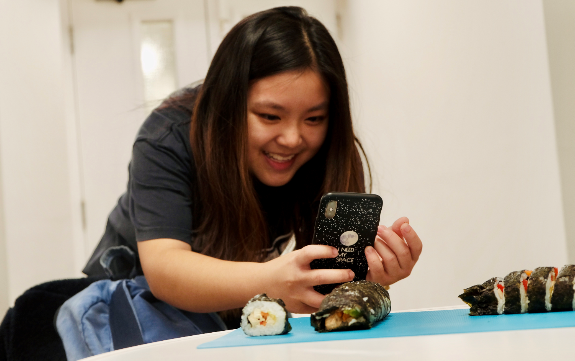
Circular Economy Workshop with the Ellen MacArthur Foundation
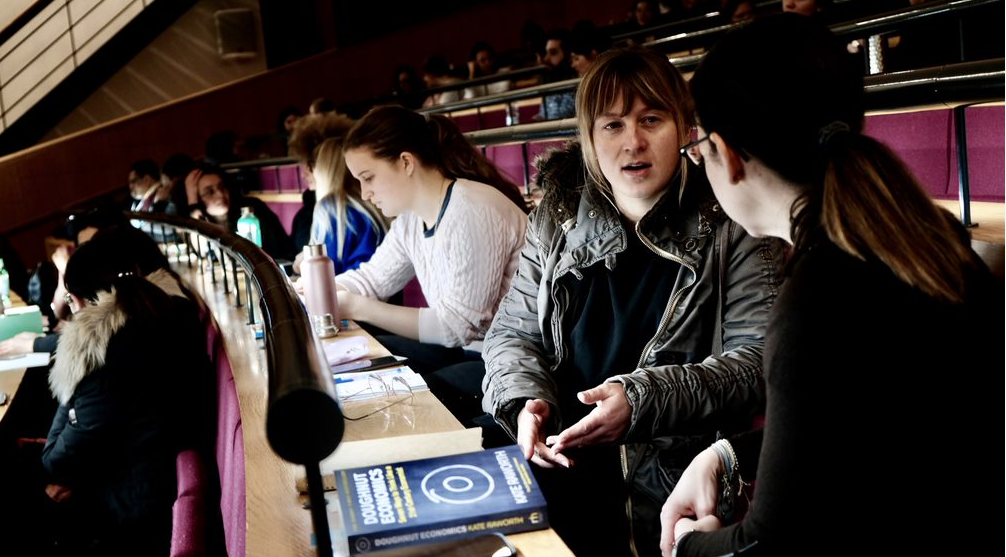 On the final day in Sustainability Week, the Ellen MacArthur Foundation came to deliver a workshop on circular economy.
On the final day in Sustainability Week, the Ellen MacArthur Foundation came to deliver a workshop on circular economy.
They gave attendees an overview of what the circular economy is, and what businesses and services using circular economy principles may look like. As it was Valentine’s Day, they tasked students with coming up with circular economy alternatives to common Valentine’s presents, including re-used cards and potted flowers.

